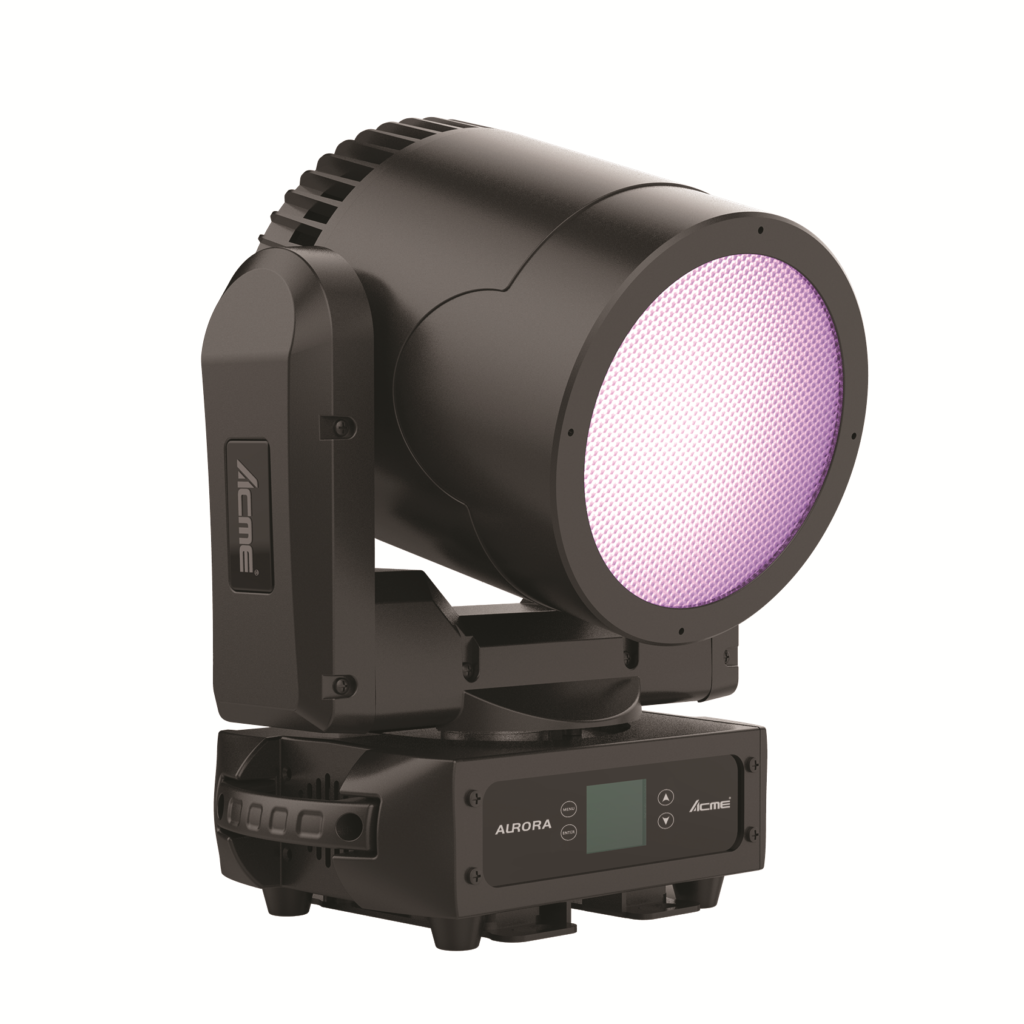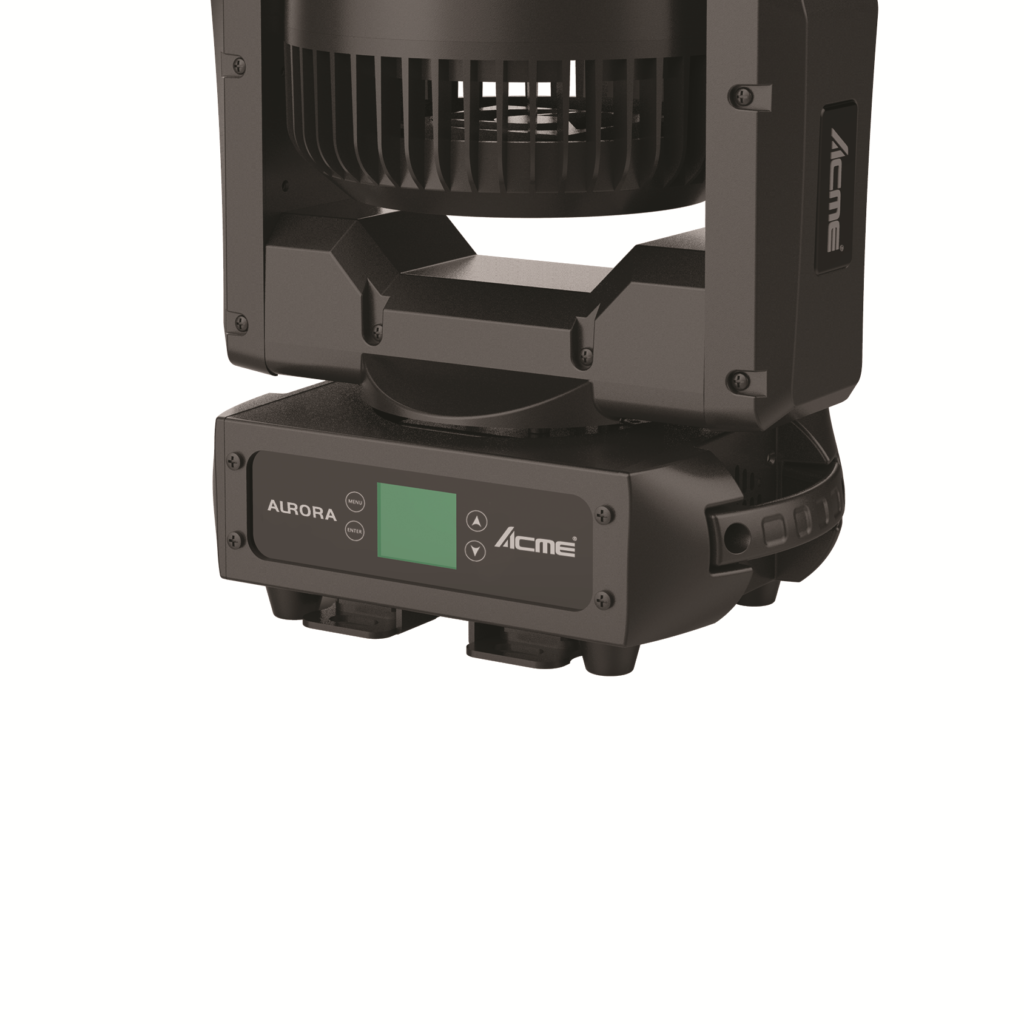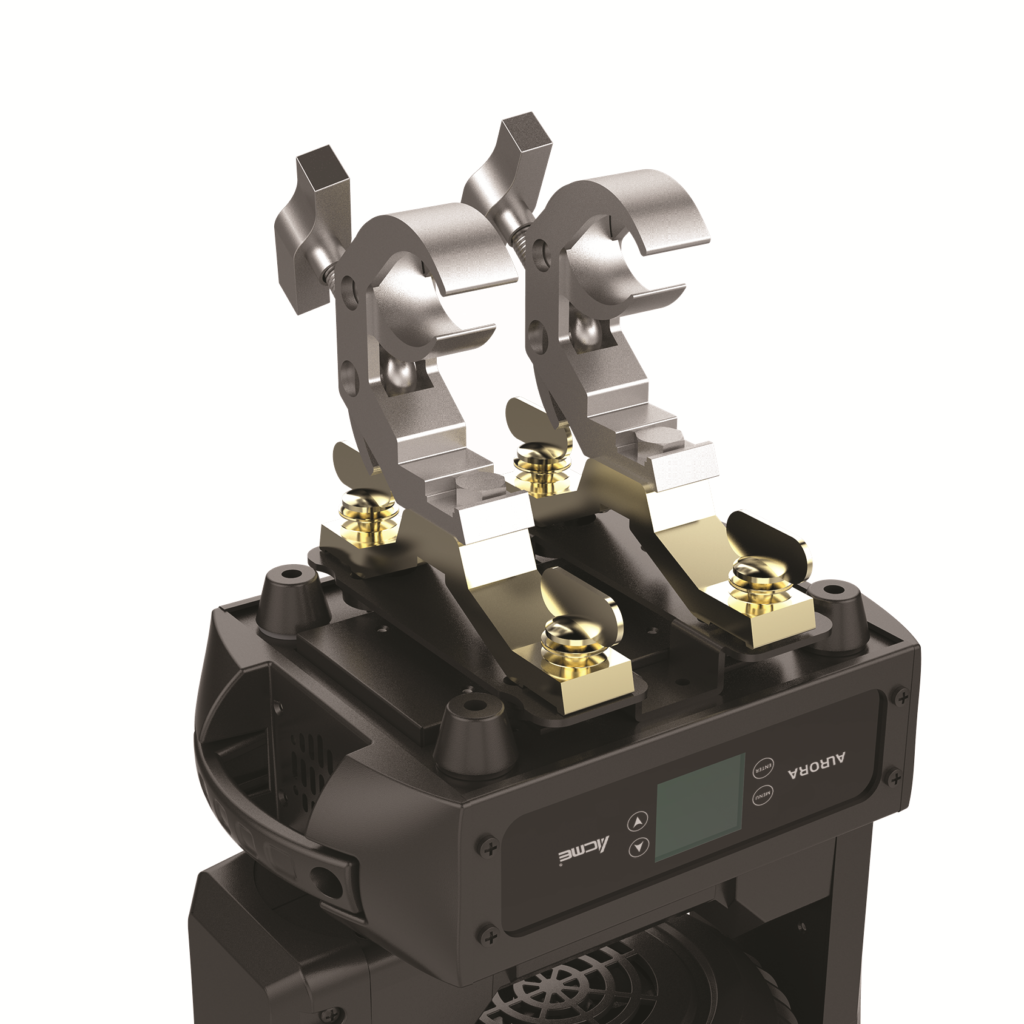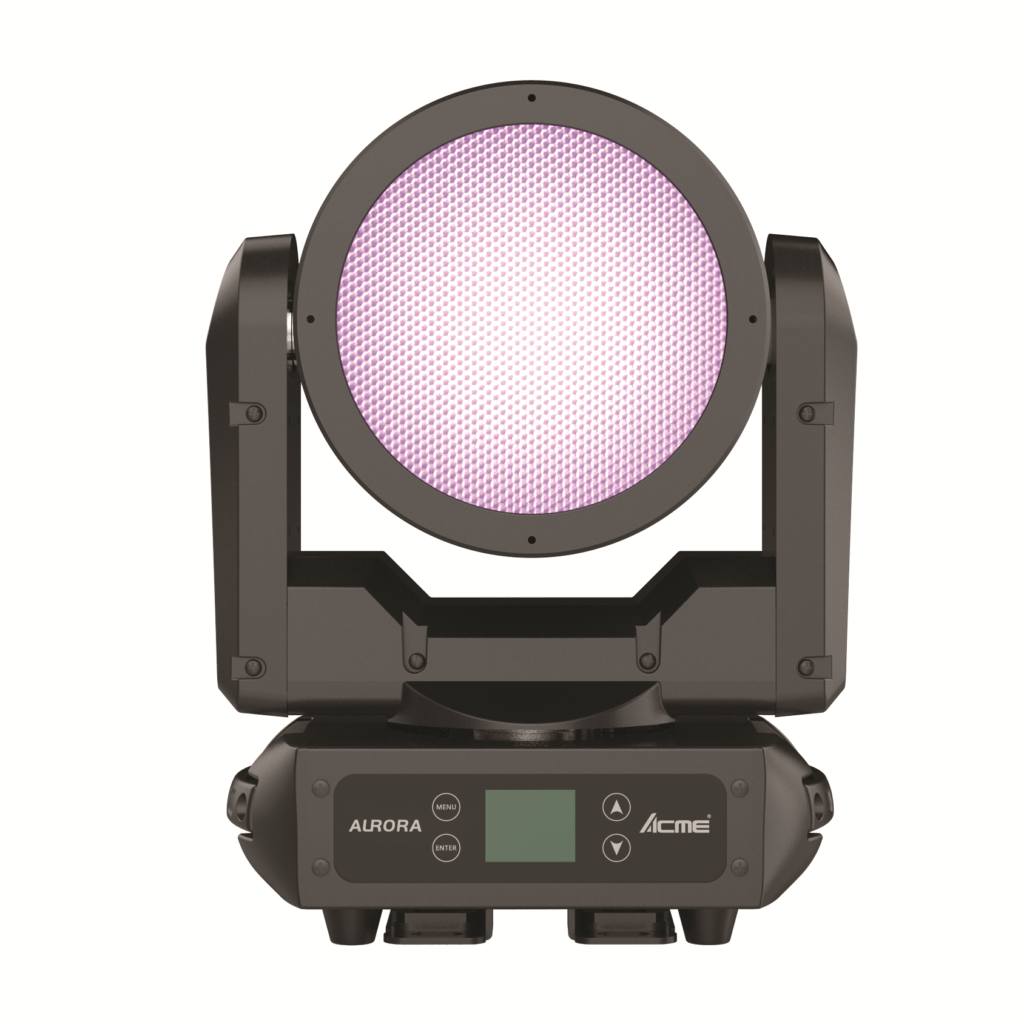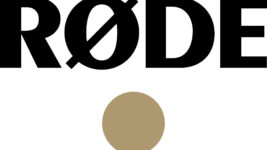News
20 May 2021
Road Test: ACME Aurora
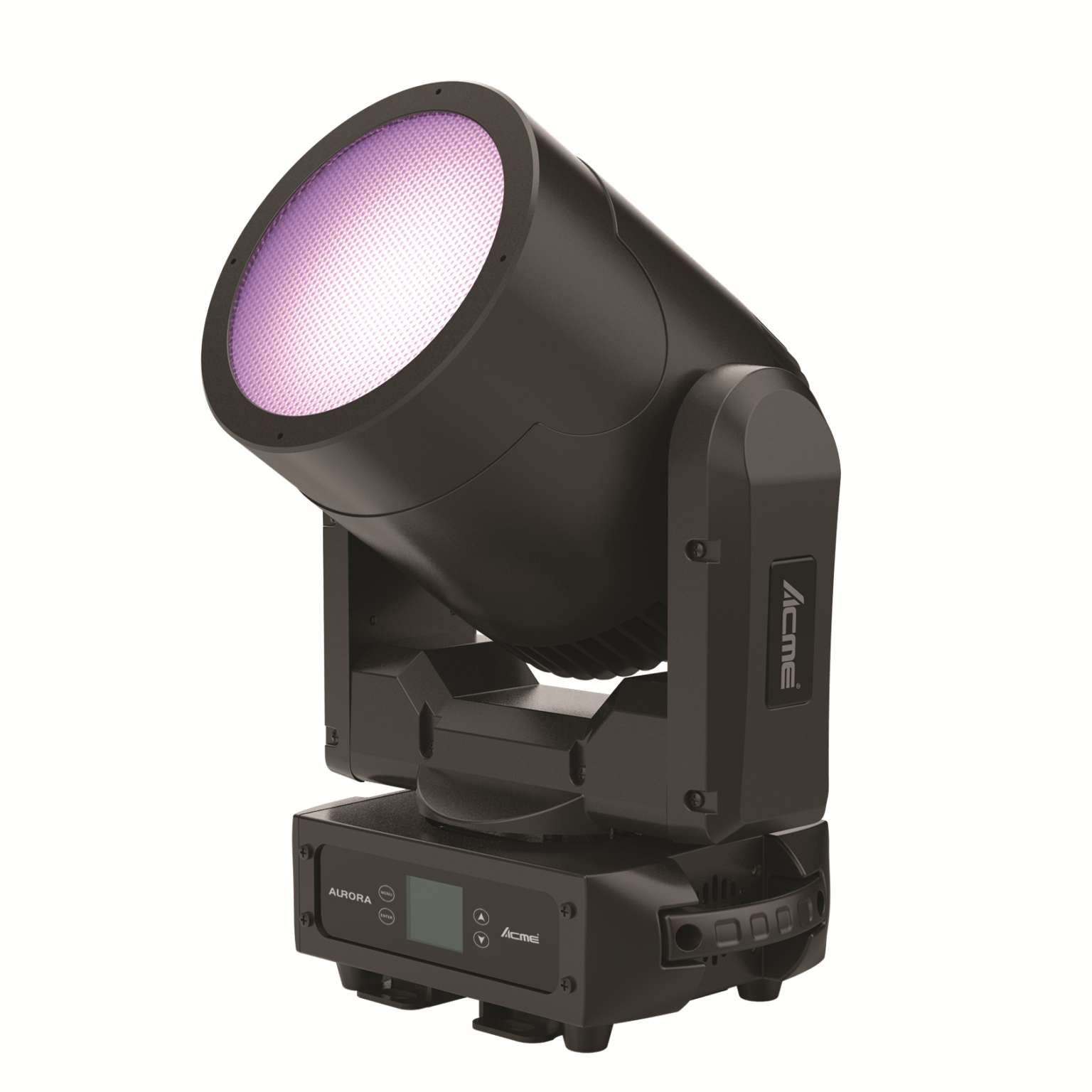
Subscribe to CX E-News
Nik Lyons is Business Development Manager at sixt5 Productions, based on NSW’s Central Coast. With 15 year’s experience in production behind him, Nik and sixt5 provide lighting, video, sound and staging services for theatre, corporate events, dance, festivals, and touring acts. They also have a thriving sales and installation business, servicing education, hospitality, government, and entertainment.
I first came across the Acme Aurora when I was scrolling through the Acme website looking for something else. It was before it was even released in Australia, but I immediately thought it could be a fixture that would really suit what we do at sixt5.
The Aurora is a COB LED wash light with a PC (pebble convex) lens. It produces a homogenised light output that sets it worlds apart from everything else on the market. Multiple LED chips are good for eye-candy looks, but you don’t really need that in theatre. COB LEDs produce a much more even output with less edge blending, which make them really nice to work with. There’s no hotspot, and ironically, no aurora around the edge. The Acme Aurora produces a really flat field of light. The PC lens gives you a similar output quality to that of a Fresnel, but instead of using rings, the inside of the lens is pebbled. It creates a pleasant softness that really works for theatre.
At sixt5, we find ourselves working in small studio spaces quite a lot. Looking at the specs and dimensions of the Aurora, I thought they’d be perfect for applications where space, loading, height, and budgets are limited. When they arrived in Australia, I sourced two units for a client who runs an 80 seat studio-style space, and I was very impressed with the results.
We’ve gone on to purchase and install many units of Aurora, most recently into the Red Tree Theatre, which is a 145 seat studio theatre in Tuggerah, NSW. We replaced their previous washes with eight Auroras, and now we have a very happy customer who can’t believe how much better their rig is while costing almost exactly the same amount as their previous fixtures. The price point of the Aurora is such that no other comparable fixture is really sitting in this part of the market.
Output, Colours, Zoom
The first thing that struck me about the Auroras was the power of their output. In a lot of the smaller spaces we work in, we’re hanging around 4 metres above the stage area, and they’ve got so much punch that I’m usually running at only 50 or 60% so I don’t wash everything else out. If you were touring regional theatres and hanging with a trim height of 6 metres, you’d still have more than enough output.
The colour mixing system is beautiful and does what RGBW should do. The Aurora produces crisp primary colours and nice pastels. I haven’t found a colour I can’t achieve.
The beam produced by the fixture is very even, and the zoom range, at 9 to 37 degrees, is fantastic, letting you go from nice and tight to very wide. Happily, the edge of the beam doesn’t suffer from the weird colour separation some fixtures have when they’re at maximum zoom, nor do I see any hotspots or colour variation at the centre.
Dimensions
The Aurora is extremely compact and light. At 10 kg, you can walk around a stage with one in each hand. This has been a huge advantage in some of the venues we work in. A recent refit saw us installing them into a converted retail outlet, which had a stringent roof weight loading limit. Being able to fit more fixtures in because of their lack of heft was a big win for us.
Build Quality
The Auroras feel good and solid in the hand, and you instinctively know that if you dropped them, they wouldn’t shatter like a cheap fixture. I have to confess, the other day I accidentally kicked one, and it just stood back up and kept going. ACME OEMs for many of the major brands, so you know they are well made. We have a lot of other Acme fixtures in our rental stock, and they all stand up well physically to the rigours of hire.
Noise and Movement
The Auroras are a quiet fixture, as the cooling fans only activate when they need to. Even when they do, it’s not noticeable. Our client at the Red Tree Theatre reported a substantial drop in the overall background noise level after we upgraded their rig.
When moving, the Aurora is also quiet. The loudest action it performs is zoom, but even that’s pretty quiet. In terms of speed of movement, it’s not as fast as some, but it’s more than quick enough, and has a completely reasonable speed for its application.
Service and Support
For control, I run mostly ETC and occasionally MA. When I first purchased the Auroras, there were no fixture profiles available on either platform, so I had to make my own, which only took five minutes. They’re available now. This is one of my only criticisms of Acme; the process for control manufacturers to update their libraries seems a little slow.
In terms of local service and support, ULA Group are amazing. I’ve had nothing but wonderful experiences with them for years. For example, the Red Tree Theatre job had fixtures coming from stock held in Brisbane, Melbourne, and even New Zealand. To save a day shipping through Sydney, Technical Sales and Support Manager Thor André put all the stock in his van and drove them to Tuggerah himself.
Conclusion
If you’re at all sceptical about Acme as a brand, I urge you to contact ULA Group for a demo and give them a go; I assure you they’ll outperform your expectations. For small to mid-sized production houses like us, Acme fixtures are a perfect mixture of performance and price. I haven’t had someone who’s asked for a more expensive product, and been swapped to Acme fixtures for budget reasons, complain at the end of the gig; quite the opposite, in fact. In our installations, I keep selling Acme, and keep getting happy clients who have no issues with performance, service or reliability. It’s a win-win.
Product Info: en.acme.com.cn
Distributor Australia and New Zealand: www.ulagroup.com
Acme Aurora – The Specs
Light source: 1 x 300W RGBW LED
Zoom range: 9° – 37°
Luminous Flux: 5384lm
Protocols: DMX512, RDM
DMX Protocol modes: 2
Control channels: 13, 15
Pan/Tilt Resolution: 16 bit
Dimmer: 16 bit
Pan movement: 540°
Tilt movement: 200°
Data in/out: 3-pin & 5-pin XLR
Height: 452 mm
Width: 310 mm
Depth: 218 mm
Weight: 10.3 kg
Subscribe
Published monthly since 1991, our famous AV industry magazine is free for download or pay for print. Subscribers also receive CX News, our free weekly email with the latest industry news and jobs.

